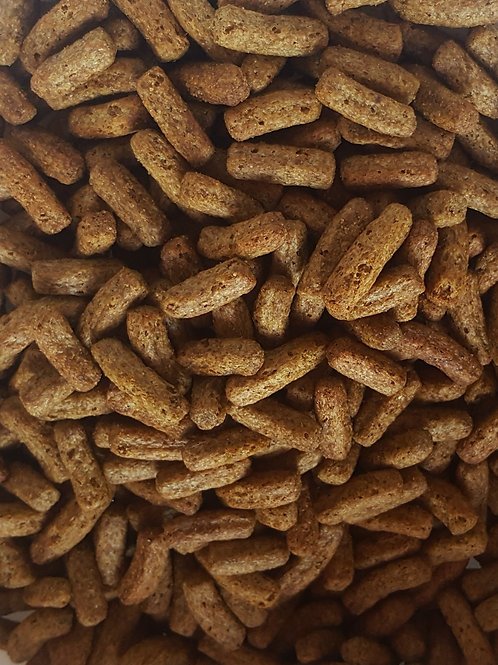Can Sugar Gliders Eat Sunflower Seeds
Can Sugar Gliders Eat Sunflower Seeds?
Sugar gliders are adorable little creatures that make great pets. They have unique dietary needs, and as a responsible pet owner, it’s important to provide them with a balanced and nutritionally appropriate diet. Sunflower seeds are a popular snack for humans, but can sugar gliders eat sunflower seeds too? Let’s find out!
The Nutritional Needs of Sugar Gliders
Before we dive into whether sugar gliders can eat sunflower seeds or not, it’s crucial to understand their nutritional needs. Sugar gliders are omnivores, which means they need a combination of both plant-based and animal-based foods to thrive.
In the wild, sugar gliders primarily feed on a variety of items, including nectar, fruits, insects, gum from trees, and even small vertebrates like birds and lizards. Their diets are diverse and rich in both carbohydrates and protein.

When kept as pets, it’s essential to replicate their natural diet as closely as possible. A well-balanced diet for a pet sugar glider typically consists of a commercial pellet or powder designed specifically for sugar gliders, fresh fruits and vegetables, and a moderate amount of protein from sources like boiled egg, cooked chicken, or small insects.
Sunflower Seeds: The Pros and Cons
Now that we know what sugar gliders need in their diet, let’s talk about sunflower seeds and their suitability for these tiny marsupials.
Can Sugar Gliders Eat Sunflower Seeds?
Yes, sugar gliders can eat sunflower seeds in moderation. Sunflower seeds are a good source of healthy fats, proteins, and various minerals, making them a potentially beneficial addition to a sugar glider’s diet. However, there are a few factors to consider before adding sunflower seeds to their menu.
1. Nutritional Value of Sunflower Seeds
Sunflower seeds are rich in vitamin E, which has antioxidant properties and supports the immune system. They also contain minerals like magnesium, phosphorus, and selenium, which are essential for the overall health of sugar gliders.
However, it’s important to note that sunflower seeds are high in phosphorus and low in calcium. A diet with an imbalance between these two minerals can lead to serious health issues like metabolic bone disease in sugar gliders. Therefore, sunflower seeds should only be offered as an occasional treat and not as a staple food.
2. High Fat Content
Sunflower seeds are high in fat, which makes them a calorie-dense food. While sugar gliders need a certain amount of fat in their diet, excessive fat consumption can lead to obesity, liver problems, and other health issues. Therefore, it’s important to offer sunflower seeds in moderation and make sure they are not the primary source of fat in a sugar glider’s diet.
3. Fatty Acid Balance
Sunflower seeds contain mostly omega-6 fatty acids, which, when consumed in excess, can create an imbalance between omega-3 and omega-6 fatty acids in a sugar glider’s body. It’s crucial to maintain a proper balance of these fatty acids to prevent inflammation and other health problems. To ensure a balanced fatty acid intake, it’s recommended to offer other foods rich in omega-3 fatty acids, such as flaxseeds or chia seeds, along with sunflower seeds.
Best Practices for Feeding Sunflower Seeds to Sugar Gliders
If you decide to offer sunflower seeds to your sugar glider as an occasional treat, here are a few best practices to follow:
1. Offer unsalted sunflower seeds: Most commercially available sunflower seeds are salted, and excessive salt intake is harmful to sugar gliders. Make sure to provide unsalted sunflower seeds to avoid any potential health issues.
2. Limit the quantity: Offer sunflower seeds sparingly and in small quantities. One or two sunflower seeds per day are sufficient for a sugar glider.
3. Variety is key: Sunflower seeds should not make up a significant portion of a sugar glider’s diet. It’s important to provide a wide range of fruits, vegetables, protein sources, and commercially formulated sugar glider food to ensure nutritional balance.
4. Observe their response: Every sugar glider is unique, and some may have specific dietary needs or sensitivities. Keep a close eye on your pet’s health and behavior after introducing sunflower seeds to their diet. If you notice any adverse reactions or digestive issues, it’s best to discontinue feeding them sunflower seeds.
Frequently Asked Questions
Q: Can sugar gliders eat roasted sunflower seeds?
A: It’s generally best to avoid offering roasted sunflower seeds to sugar gliders. Roasted seeds often have added oils and flavorings, which can be harmful to these small animals. Stick to providing plain, unsalted sunflower seeds as an occasional treat instead.
Q: Can sugar gliders eat black oil sunflower seeds?
A: Black oil sunflower seeds are commonly used as bird food and are safe for sugar gliders to consume. However, offer them in small quantities and ensure they are unsalted and without any added flavorings.
Q: Are sunflower seeds a choking hazard for sugar gliders?
A: Sunflower seeds can be a choking hazard if not properly prepared. Remove the outer shells of the seeds before offering them to your sugar glider. This reduces the risk of choking and makes the inner seed easily digestible.
Final Thoughts
In conclusion, sugar gliders can eat sunflower seeds in moderation but as part of a well-balanced and varied diet. While sunflower seeds offer several nutritional benefits, they should not be a staple food and should be offered sparingly. Remember to consider the high fat content, potential fatty acid imbalance, and the need for a proper balance of calcium and phosphorus in a sugar glider’s diet. Always observe your pet’s health and behavior and consult a veterinarian if you have any concerns about their diet or well-being.







